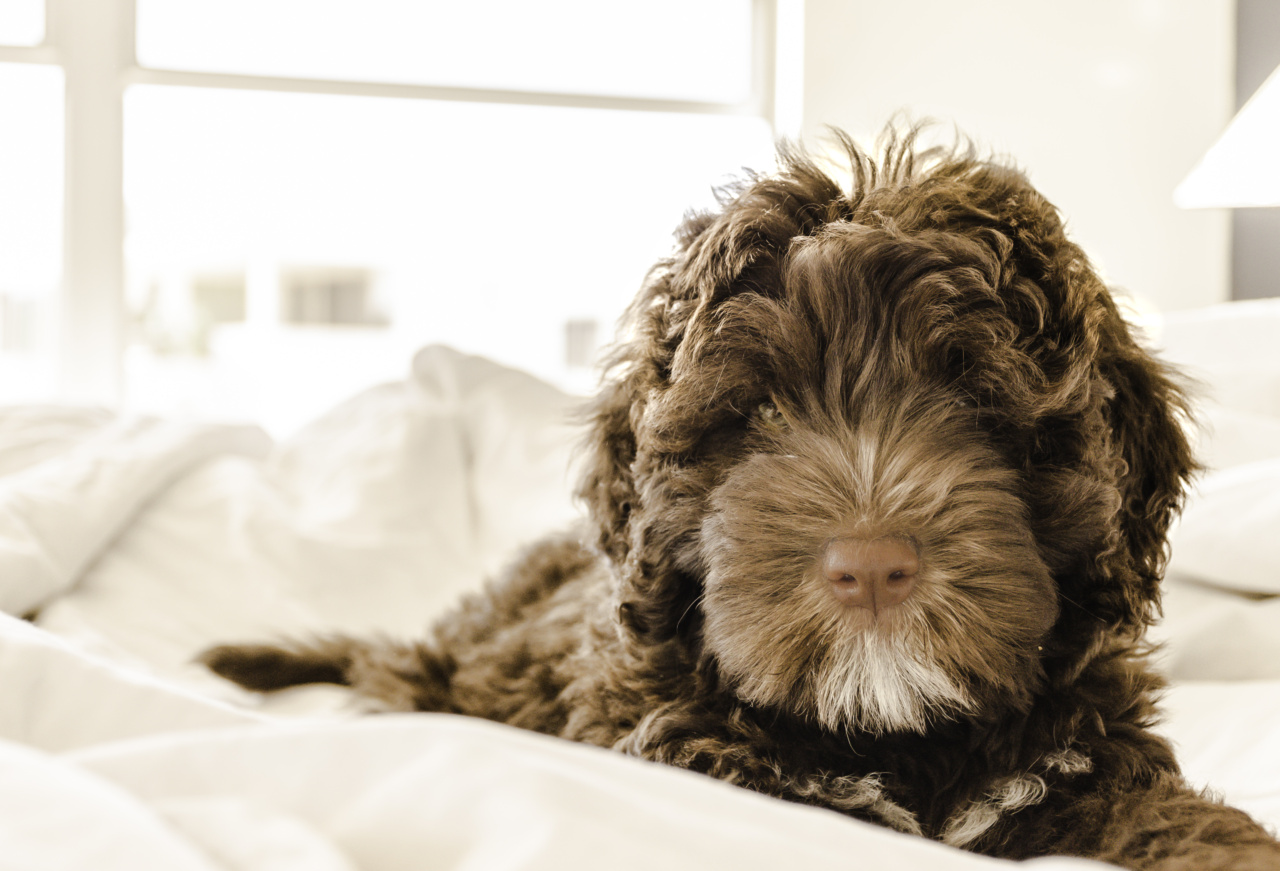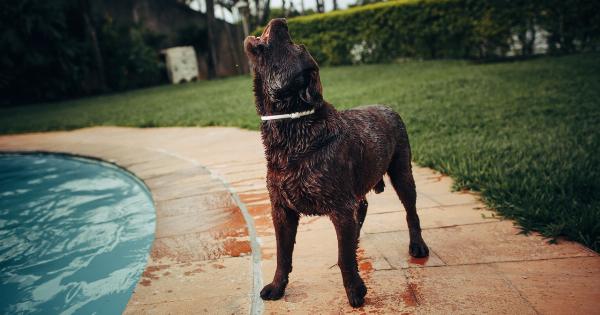There are several reasons why your puppy might be peeing in his bed. Understanding these reasons can help you address the issue and train your puppy to have better bathroom habits. Below are some potential causes and solutions to consider:.
1. Inadequate potty training
Puppies need to be properly trained to understand where they should eliminate. If your puppy hasn’t received proper potty training, he may not understand that his bed is not an appropriate place to pee.
In this case, you’ll need to start from scratch and establish a consistent potty training routine.
2. Marking territory
Some puppies may pee on their beds as a way to mark their territory. This behavior is more common in unneutered males but can also be observed in females. It’s essential to address this issue early on and prevent it from becoming a habit.
Neutering or spaying your puppy can significantly reduce marking behavior.
3. Submissive urination
If your puppy urinates when he’s feeling scared, anxious, or submissive, he might pee in his bed. Submissive urination is common in younger puppies, and they may grow out of it as they gain confidence.
Avoid scolding or punishing your puppy for submissive urination as it will only worsen the problem. Instead, focus on building your puppy’s confidence through positive reinforcement training.
4. Urinary tract infection (UTI)
Puppies can also develop urinary tract infections, which can cause them to have accidents, including peeing in their bed. UTIs can cause discomfort and increased urgency to urinate.
If you suspect your puppy has a UTI, it’s essential to consult your veterinarian for proper diagnosis and treatment.
5. Excitement or lack of bladder control
Young puppies may get overly excited and forget to hold their bladder, resulting in accidents including peeing in their bed. Just like human babies, puppies need time to gain control over their bladder muscles.
As they grow older, their bladder control will improve. In the meantime, be patient and consistent with potty training.
6. Medical conditions
In some cases, there might be underlying medical conditions causing your puppy to pee in his bed. These conditions could include bladder stones, kidney problems, or even diabetes.
If you notice consistent accidents and suspect a medical issue, it’s crucial to consult your veterinarian for a thorough examination and appropriate treatment.
7. Environmental factors
Puppies are sensitive to their surroundings, and changes in their environment can trigger accidents. Moving to a new home, rearranging furniture, or introducing new pets can stress out your puppy and lead to peeing in his bed.
Help your puppy adjust to these changes gradually and provide a safe and comfortable space for him to eliminate properly.
8. Insufficient access to outdoor bathroom breaks
If your puppy doesn’t have enough opportunities to relieve himself outdoors, he may resort to using his bed as a bathroom. Puppies have small bladders and generally need to eliminate every few hours.
Make sure to provide regular bathroom breaks and establish a consistent routine for outdoor visits.
9. Accidental reinforcement of bad behavior
Sometimes, unintentional reinforcement of bad behavior can lead to a puppy peeing in his bed. If you clean up accidents without properly eliminating the odor, your puppy may continue using that spot.
It’s crucial to thoroughly clean any soiled areas with an enzymatic cleaner specifically designed for pet urine to eliminate the scent.
10. Lack of proper crate training
If you use a crate for your puppy, improper crate training may contribute to peeing in his bed. The crate should be seen as a safe and comfortable den for your puppy, not as a place for elimination.
Gradually introduce your puppy to the crate, make it a positive experience, and ensure it is an appropriate size for him.
Conclusion
Understanding why your puppy is peeing in his bed is the first step towards solving this problem.
Whether it is due to inadequate potty training, marking behavior, submissive urination, medical conditions, or other factors, addressing the issue promptly and appropriately is crucial for your puppy’s well-being and your sanity.
Remember to be patient, consistent, and use positive reinforcement when training your puppy. If the issue persists despite your efforts, don’t hesitate to seek guidance from a professional dog trainer or your veterinarian.































